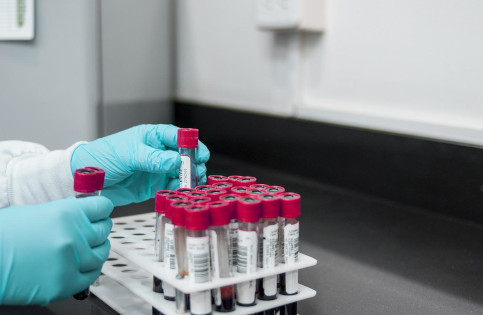Ipertermia nei tumori della vescica
Combinazione di Ipertermia e radioterapia nel paziente anziano
 Lo scopo del presente studio clinico è di valutare la combinazione di ipertermia capacitiva profonda a radiofrequenza oncologica e chemioradioterapia nel paziente anziano affetto da neoplasia della vescica infiltrante. La combinazione migliora l'andamento di malattia.
Lo scopo del presente studio clinico è di valutare la combinazione di ipertermia capacitiva profonda a radiofrequenza oncologica e chemioradioterapia nel paziente anziano affetto da neoplasia della vescica infiltrante. La combinazione migliora l'andamento di malattia.Is hyperthermia combined with radiotherapy adequate in elderly patients with muscle-invasive bladder cancers? Thermo-radiobiological implications from an audit of initial results.
Abstract
PURPOSE:
The aim of this study was to evaluate the outcomes of loco-regional hyperthermia (HT) with radiotherapy (RT) and/or chemotherapy (CT) in elderly patients with muscle-invasive bladder cancers (MIBC).
MATERIAL AND METHODS:
Twenty consecutive MIBC patients were treated with HTRT (n = 8) or HTCTRT (n = 12) following transurethral resection of their bladder tumours. Weekly HT was administered prior to RT to a mean temperature of 40.6-42.7 °C for 60 min. A mean RT dose of 54.6 Gy (SD ± 4.2) was delivered. Single-agent cisplatin (n = 2) or carboplatin (n = 10) was used in HTCTRT patients.
RESULTS:
The median age was 81 years. HTRT patients received a mean RT dose of 51.0 Gy compared to 57.1 Gy with HTCTRT (p < 0.001) in a shorter overall treatment time (OTT) (30.8 ± 6.9 versus 43.9 ± 4.0 days, p < 0.001). All HTRT patients had long-term local disease control, while 41.6% of HTCTRT recurred during follow-up. None of the HTRT patients experienced grade III/IV acute and late toxicities, while these were evident in two and one HTCTRT patients respectively. Taken together, the 3-year bladder preservation, local disease-free survival, cause-specific survival and overall survival were 86.6%, 60.7%, 55% and 39.5% respectively. Even though the mean biological effective dose (BED) for both groups was similar (57.8 Gy15), the thermo-radiobiological BED estimated from HT-induced reduction of α/β was significantly higher for HTRT patients (91 ± 4.4 versus 85.8 ± 4.3 Gy3, p = 0.018).
CONCLUSIONS:
Thermal radiosensitisation with consequent reduction in α/β results in a higher thermo-radiobiological BED with a relatively higher RT dose/fraction and shorter OTT. This translates into a favourable outcome in elderly MIBC patients. Any benefit of CT in these patients needs further investigation.
KEYWORDS:
Chemotherapy; hyperthermia; muscle-invasive bladder cancers; radiotherapy; thermal radiobiology

 RSS
RSS 





